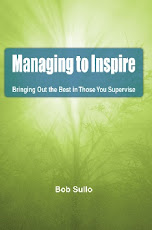You can’t get much more mainstream than The Wall Street Journal. For that reason, I was delighted to read a piece written on June 18 by Eric Felton that unmasks the limits of incentive programs sweeping the nation (“Age of Incentives: Paying Big Bucks for Puny Results”). I encourage you to do yourself a favor and read this brief article, but here’s an excerpt:
"The incentive schemes may be touted as sophisticated means to produce desirable social outcomes. But as far as policy innovations go, the basic idea—if you want people to do more of X, pay them to do X—strikes me as decidedly uninspired. Especially since it so rarely works.
"Companies may have bulked up the slimming schemes, but that hasn't exactly produced a svelte workforce. It turns out that paying kids to get better grades doesn't result in better grades, either."
Of course, like most of us, the author knows no alternative to rewards, so ends his article with resignation: “That said, I’m off to the Lego Store.”
I’m sensing a fundamental (and very exciting) shift. Increasingly, people are accepting that the reward/punishment model has taken us as far as it can. The uncomfortable dilemma facing the majority is that they don’t know what else to do. (Hence, “I’m off to the Lego Store.”) If you’re looking for a viable alternative, I hope you’ll check out any (or all) of my books listed on the left. You will find practical strategies that will help you engage and inspire. It's time to move beyond the reward/punishment model.





